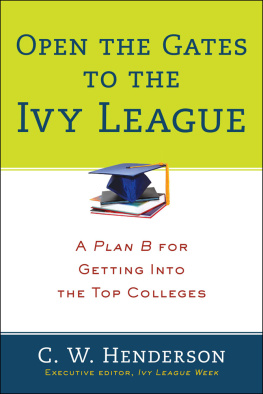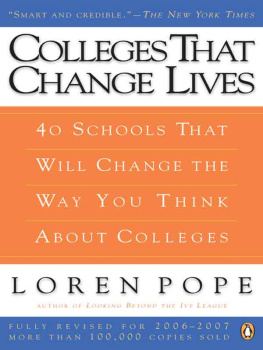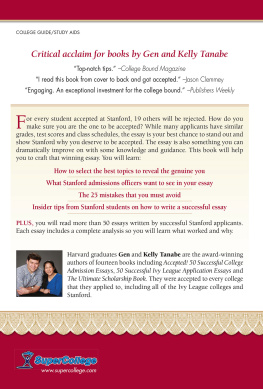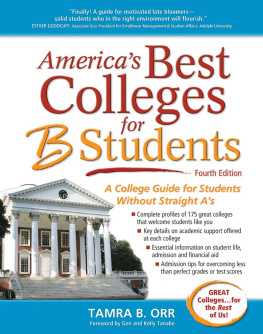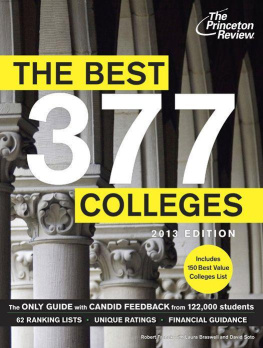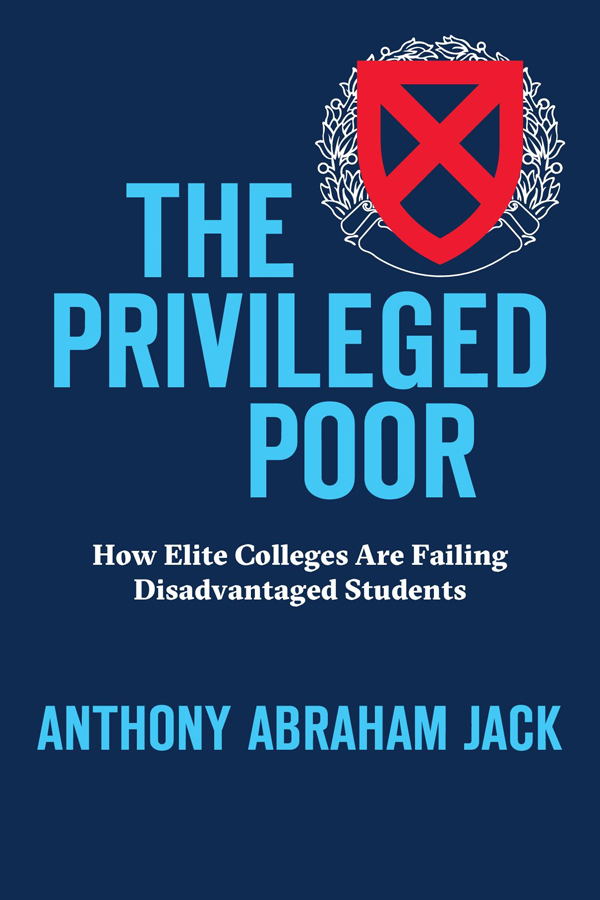978-0-674-97689-4 (alk. paper)
The Library of Congress has cataloged the printed edition which is available at loc.gov
I am what time, circumstance, history, have made of me, certainly, but I am, also, much more than that. So are we all.
Toto, Ive a feeling were not in Kansas anymore.
DOROTHY, The Wizard of Oz
Where are the other poor black kids? This is the first question I remember asking myself, a chubby freshman with my hair in cornrows, while walking across the Amherst College campus. I was in the center of the main quad, standing outside Johnson Chapel. The lawn was freshly mowed. It looked pristine, a shimmering deep green. The evening, slightly chilly for a Miami transplant such as myself, was filled with excitement as the incoming freshmen meandered around, nervously greeting one another. Conversations bubbled all around me. Wasting little time, my new peers enlisted me in a rite of passage that, fifteen years later, I now call convocation conversationsthose quick, casual introductory chats that happen en route to meals and classes, where students conveniently work in verbal versions of their resumes and narrate their summer itineraries for any and all to hear.
These strangersmy new classmatesswapped stories of summer fun. Multiweek trips abroad. Fancy parties at summer homes. Courtside seats at professional basketball games. Invitations to private premieres of movies that, as far as I knew, had not yet hit theaters. Many of these kids were white, but the black students were chiming in too, going tit-for-tat recounting the elaborate stories behind their passport stamps. One black classmate casually mentioned that she had flown on a private jet. I thought back to my first time on a plane, which had been just a few months ago: me struggling to chew five pieces of Wrigleys Doublemint gum, because everyone had made me afraid that my ears would pop, as I boarded a Delta Airlines flight from Fort Lauderdale to Hartford, Connecticut, for my Amherst football recruiting trip. I tried to think of a story that I could add. The only family vacations I had known were drives up I-95 from Miami to a cousins house in Georgia. These rich kids had their own version of summer. In my family, summer was just a season, a hundred days of heat, humidity, and hurricanes. And mosquitoes.
I was surrounded by affluence; some of my Amherst classmates were flat-out rich. The Amherst brochure boasted that roughly 40 percent of students received financial aid, but I knew what that really meant: more than half of my classmates came from families that made too much money to qualify for any financial aid. I was not surprised by the wealth. After all, I already knew what it meant to go to school with rich people. I had just finished my senior year at Gulliver Preparatory, a wealthy private high school in Miami. Although I was only there for a year, it gave me a taste of what was to come, both socially and academically. My best friend at Gulliver, whose father convinced me to start eating burgers medium instead of well done, which was the rule in my house, received a car his senior year, and an all-expenses-paid backpacking trip through Europe as a graduation gift. The first time I heard the word hostel was while sitting in the larger of the two family rooms in their sprawling, Spanish-style home.
But there was a difference between what I had experienced at Gulliver and what I found at Amherst. While I was not shocked by the wealth, I was surprised by its color. The rich kids at Gulliver, those who drove Range Rovers and boasted of extravagant vacations, were not black. But at Amherst, many of my new wealthy classmates were.

What I discovered that afternoon was the same thing I would read about years later, as a sociology graduate student, in William Bowen and Derek Boks groundbreaking study of American higher education, The Shape of the River. Bowen and Bok found that the majority of black students at the twenty-eight elite colleges and universities they studied (from Ivy League institutions, like Columbia University, to flagship public universities, like the University of Michigan at Ann Arbor) came from upper-income families. My Amherst classmates were no exception. Some were the sons of Bain Capital and McKinsey & Company. Others were the daughters of the Mayo Clinic and Massachusetts General Hospital. I was not. I was a Head Start kid from Coconut Grove, a distressed community that, in 2013, the Miami Herald called a neighborhood that time forgot. My mother patrolled the hallways of Ponce de Leon Middle School for over thirty years, wearing a green polo shirt with SECURITY in white block letters emblazoned across its back. By day, my older brother, his pale blue uniform peppered with bleach spots, cleaned the classrooms of my old elementary school; by night, he cleaned the emergency rooms at South Miami Hospital.
Before I transferred to Gulliver, the closest I got to rich was through the stories my grandmother told me. For her entire adult life she cleaned the homes of wealthy white families, mainly doctors and lawyers. When my cousin was arrested for possession of a controlled substance, one of my grandmothers employers, a lawyer, represented him as a favor for her twenty-plus years of service. She did not gossip about what went on inside her employers homes. Now and then, however, she would let slip a detail about an expensive purchase or a lavish family trip. The father of one of the families, a commercial pilot, invited my grandmother to travel on one of his flights so that she could hear his voice come across the intercom greeting passengers as they took their seats. (She never did go.) But second-hand accounts and unanswered invitations were the extent of my exposurewealth was always just a story to me. Hearing my classmates at Amherst recount their adventures, just as distant as those my grandmother shared when we sat at her knee, I resigned myself to be, yet again, one of the few poor black people in a rich (mostly) white place, just as I had been at Gulliver.
My hasty conclusion that afternoon was reasonable. Higher education in America is highly unequal and disturbingly stratified. Youth from poor families of all races, but especially those from black and Latino families, are less likely to go to college than their wealthy peers. When they do go to college, they rarely attend schools like Amherst. Although half of all undergraduates in the United States are the first in their family to go to collegewith most of those coming from poor backgroundsfirst-generation college students are disproportionately relegated to community colleges, for-profit colleges, and less-selective four-year colleges. Those institutions share some troubling traits: resources are few, aid for students is scarce, and retention is low.


